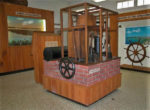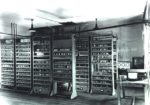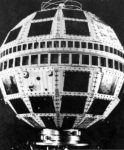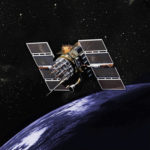Yale patents his first lock, the first American heads to space, and the public’s use of GPS technology gets a boost… It all happened This Week in Tech History.
This week in 1851 – Dr. John Gorrie of Apalachicola, FL was granted a patent for mechanical refrigeration. The official title on the patent calls it the improved process for the artificial production of ice. Dr. Gorrie’s basic principle is the one most often used in refrigeration today; namely, cooling caused by the rapid expansion of gases. Before giving up his medical practice to pursue refrigeration, Gorrie’s research involved the study of tropical diseases. His treatment was to cool the air around patients, which required lots of ice, in turn, leading to his invention.
Also happening this week in 1851 – After learning the craft from his father who had been an inventor and lock maker, Linus Yale Jr. of Newport, NY became well known for his patent of the lock and key. Yale would amass 20 different patents, including designs for locks, safes and post office boxes. Many of Yale’s inventions are still in use today. And If the name Yale sounds familiar, it should. The company he started 153 years ago in 1868 is still one of the top manufacturers of locks today.
1949 – Electronic delay storage automatic calculator, or EDSAC, ran its first operation. EDSAC was installed on the campus of the University of Cambridge Mathematical Laboratory in the UK.
1961 – Astronaut Alan Shepard became the first U.S. space traveler as he rode a Redstone rocket on a 15-minute, suborbital flight that took him and his Freedom 7 Mercury capsule 116.5 miles high and 302 miles downrange from Cape Canaveral, FL.
1963 – The United States launched the Telstar 2 communications satellite. Developed by Bell Telephone Laboratories and jointly operated by AT&T and NASA, Telstar 2 transmitted the first public transatlantic broadcast.
And this week in 2000 – President Bill Clinton announced that accurate GPS access would no longer be restricted to the United States military. This gave rise to a brand new recreational activity, Geocaching. An interesting side note: While the GPS system is free to the public, it actually costs the US government about 2 million dollars per day to operate.







